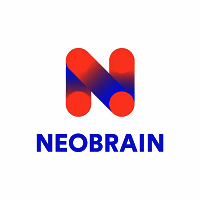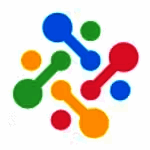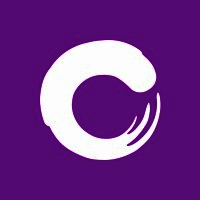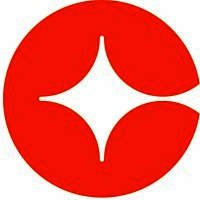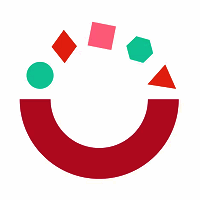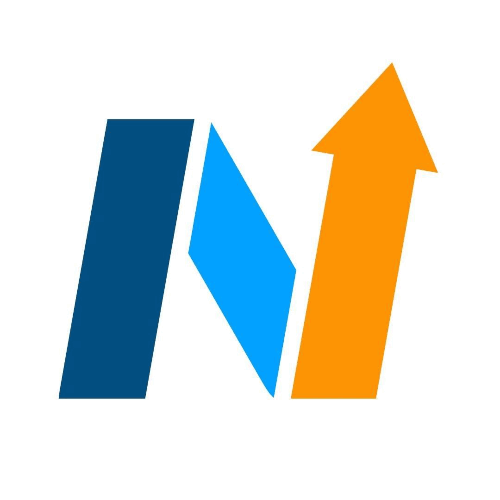Yes, most career management software is intended to be available from numerous devices and platforms. This enables customers to effortlessly access the program from their cellphones, tablets, and laptops, independent of operating system. Most career management software includes cloud-based storage, allowing users to view their data from any device with an internet connection. This flexibility allows individuals to manage their career objectives and progress from anywhere.
List of Best Career Management Software
Neobrain is a HR solution for managing crises in organizations. This cutting-edge software is designed to effectively handle the effects of organizational and job market changes on employees, ensuring their well-being and productivity. With its advan...Read More Neobrain
Gloat is a Agile Workforce Operating System. With its powerful AI technology, Gloat transforms talent management by providing unparalleled skills visibility, enabling effective workforce planning and fostering professional growth. Say goodbye to trad...Read More Gloat
Mesh.ai is an innovative software that revolutionizes talent management and organizational development through the use of AI technology. Our cutting-edge platform offers advanced features, including skill assessment, career planning, and workforce op...Read More mesh.ai
Pando is a tool for project management that transforms team dynamics. With its in-built real-time collaboration features, user-friendly task tracking, and robust analytics, Pando empowers businesses to effortlessly enhance productivity and meet goals...Read More Pando
Culture Amp the people analytics solution for businesses looking to enhance employee engagement, performance, and development. By using a unique blend of data science and psychology, this platform provides valuable insights to help companies create a...Read More Culture Amp
OneRange solution for workforce development that will revolutionize your business. Empower your team to expand their skills with engaging learning opportunities. Experience the impressive growth and success that comes with investing in your workforce...Read More OneRange
365Talents is a digital solution for optimizing talent management and skills utilization in businesses. Our platform utilizes advanced data analytics and machine learning technology to unleash the true potential of your employees skills. Experience a...Read More 365Talents
SuccessFinder - this software that focuses on evaluating and maximizing talent. By utilizing advanced psychometric assessments, data analysis, and AI technology, SuccessFinder allows businesses to effectively identify and develop employees strengths...Read More SuccessFinder
Welcome to Juno Journey - your ultimate guide for all things related to fertility, pregnancy, and motherhood. Our platform provides a plethora of practical resources including expert articles, helpful guidance, and genuine stories to support you on y...Read More Juno Journey
BetterUp is a digital platform designed for personal and professional growth. Users can easily connect with certified coaches who provide personalized guidance and resources for achieving their goals and improving well-being. With a range of tools an...Read More BetterUp
Cornerstone Performance - the leading performance management solution for businesses. Empower your managers with cutting-edge technology that allows them to accurately evaluate employee performance, align it with company objectives, and offer helpful...Read More Cornerstone Performance
GrowthSpace is talent development platform that offers personalized learning and growth opportunities to employees. Our focus is on mastery of skills and our centralized solution allows for easy initiation, management, and assessment of various learn...Read More Growthspace
Nestor is a talent management solution that streamlines workforce optimization for organizations. With its advanced capabilities, Nestor empowers HR and business leaders to effectively identify, activate, and strategically utilize skills to drive top...Read More Nestor
Fuel50 is the AI-powered Talent Marketplace designed to supercharge your organizations workforce agility and internal talent mobility. Unlock the full potential of your team with our cutting-edge technology that seamlessly matches employees with suit...Read More Fuel50
Lattice is a Sales Force Automation solution. This web-based platform integrates seamlessly with CRM, providing a comprehensive view of customers. With advanced lead scoring and predictive analytics, it can increase sales success by up to 14%. Revolu...Read More Lattice
Learn Amp is a People Development Hub designed to transform learning and talent development. Using advanced AI technology, it offers personalized development paths and measurable targets to drive tangible results. Elevate your performance and be ackn...Read More Learn Amp
Schoox is a learning management solution for businesses. Our comprehensive platform empowers companies to foster continuous employee development and align training with company goals. With personalized learning journeys, automated compliance procedur...Read More Schoox
Leapsome is a performance management software that aims to enhance employee engagement by facilitating continuous feedback, monitoring goals, and creating personalized development plans. It enables teams to maximize their potential and fosters a cult...Read More Leapsome
Kahuna is a project management solution designed to streamline your workflow. With its intuitive interface, powerful task monitoring, and real-time collaboration capabilities, Kahuna makes team coordination a breeze. Gain valuable insights and boost...Read More Kahuna
Cegid is a POS system specially designed for small businesses. Its user-friendly interface and customizable features streamline all retail processes, including HR and inventory management. With innovative tools like in-store mobility, order tracking,...Read More Cegid
Learn More About Career Management Software
- What Is Career Management Software?
- What Are The Recent Trends In Career Management Software?
- Benefits Of Using Career Management Software
- Important Factors To Consider While Purchasing Career Management Software?
- What Are The Key Features To Look for In Career Management Software?
- Why Do Businesses Need Career Management Software?
- How Much Time Is Required To Implement Career Management Software?
- What Is The Level Of Customization Available In Career Management Software?
- Which Industries Can Benefit The Most From Career Management Software?
- Conclusion
What Is Career Management Software?
Career management software is a strong tool that helps individuals and companies efficiently manage their professional growth and development. It offers a consolidated platform for individuals to plan and manage their professional objectives, assess their progress, and make educated career advancement decisions. This software has a variety of functions, including goal planning, skill assessment, performance evaluation, training and development plans, and job search tools, to mention a few.
These tools allow users to design individual growth plans based on their skills, shortcomings, and professional goals. Career management software helps firms streamline the process of finding and developing internal talent. It enables managers to monitor their employees' professional progress and provide relevant tools, feedback, and coaching to help them attain their maximum potential.
In addition to career planning and growth, this program provides real-time employment market data to help people make informed career selections. It includes information about current employment trends, income ranges, and in-demand abilities, which can be useful for those trying to advance in their professions. Another important element of career management software is its capacity to connect users with mentors and career coaches.
This networking opportunity can provide vital assistance, support, and advice to people at all stages of their careers. In today's competitive employment market, career management software is becoming a vital tool for individuals and businesses looking to stay ahead.
It provides a holistic solution for managing careers efficiently, resulting in enhanced job satisfaction, growth possibilities, and overall success. So, whether you are a professional trying to improve your career or an organization looking to develop and retain people, career management software is a good investment to make.
What Are The Recent Trends In Career Management Software?
In recent years, the labor market landscape has changed dramatically, causing a shift in how people manage their careers. As a result, career management software has become more widely available and popular. These tools include a variety of features and information to help people plan and negotiate their professional pathways.
So, what are the current trends in career management software that you should be aware of before acquiring one? Here are some of the main trends to watch for:
1. Personalization And Customisation: One of the most noticeable developments in career management software is the emphasis on personalization and customisation. With an increased understanding of the significance of unique career trajectories, these tools now provide personalized assessments and suggestions based on each user's goals, talents, and interests.
2. AI-Powered Tools: AI is changing the way career management software works. Many tools now use AI-powered algorithms to deliver individualized career advice, job recommendations, and learning opportunities. This allows users to make better judgments depending on their own skill set and career ambitions.
3. Mobile Accessibility: With the development of mobile usage, career management software has become more accessible and user-friendly on smartphones and tablets. This enables individuals to track their professional development and access resources while on the go, making it easier to manage their careers.
4. Emphasis On Soft Skills: As the demand for professionals with soft skills grows, career management software has begun to prioritize the development and improvement of these skills. Many tools now include learning modules, coaching, and feedback for soft skills including communication, time management, and leadership.
5. Integration With Other Resources: Career management software is increasingly being linked to other resources including learning management systems, job search portals, and social media. This connection provides users with a more seamless and efficient experience, allowing them to manage their careers in one spot.
Benefits Of Using Career Management Software
Having the correct tools for career management is critical to success. Here's where career management software comes in. Career management software, which is specifically designed for professionals and job seekers, provides numerous features that can assist you in achieving your career objectives. First and foremost, career management software provides a single platform for tracking all of your work-related information.
This contains your resume, job applications, networking contacts, performance reviews, and more. Having everything in one location makes it much easier to keep organized and in control of your professional progress. One of the most major advantages of using career management software is the ability to design and customize your professional identity.
These tools often include adjustable resume templates and portfolio builders, allowing you to effectively highlight your talents and accomplishments. This is especially important for job searchers who want to make a good impression with hiring managers. Furthermore, career management software gives you access to resources and tools that can assist you progress in your profession.
These could include job search engines, career exams, interview simulators, and networking possibilities. Using these tools will help you obtain a competitive advantage and stay up to date on the newest job trends and possibilities. Another benefit of adopting career management software is the ability to monitor your development and success.
These programs frequently offer features that enable you to create career objectives and track your progress over time. This can be encouraging and provide a sense of accomplishment as you pursue your ideal job. Finally, career management software provides simplicity and flexibility. It enables you to access your professional information and resources from any device, making it easier to stay connected and on track with your career development while on the go.
Important Factors To Consider While Purchasing Career Management Software?
When it comes to investing in career management software, there are a few crucial considerations to consider. Not all software is made equal, and understanding your requirements and the software's features can help you make an informed decision. Here are some crucial considerations to consider while selecting career management software:
1. Features And Functionality: The first thing you should think about is the software's features and capabilities. What tools and resources does it provide for managing your career? Common features include job search aid, résumé creation, networking tools, and career planning resources. Check if the program provides the capabilities you need to achieve your career objectives.
2. Usability: Your career management software should be straightforward to use and browse. It should not be extremely complex or require substantial training to operate. Look for software with a simple and intuitive interface that can be quickly understood and used by people of all skill levels.
3. Compatibility And integration: Determine whether the product is compatible with your existing operating system and can integrate with other tools or applications you use. This will ensure a smooth experience and effective use of the software.
4. Data Security: Because career management software handles sensitive personal information, it is critical to verify that appropriate security measures are in place. To keep your information safe, look for software that includes data encryption, regular backups, and secure online storage options.
5. Customization Options: The best career management software should allow you to customize the experience to meet your individual requirements. It should allow you to add and amend information, measure progress, and create goals based on your career path.
6. Customer Support: Look for software that provides dependable and timely customer support in the event of any problems or concerns. This will ensure that you have a great experience and are able to promptly fix any potential issues.
7. Pricing And Budget: Finally, when selecting career management software, think about the cost and your budget. Some software may have a one-time purchase, whilst others may require a subscription basis. Compare costs and features of many alternatives to determine the best fit for your needs and budget. By keeping these key considerations in mind, you can make an informed selection and select the best career management software to help you reach your professional objectives.
What Are The Key Features To Look for In Career Management Software?
When it comes to properly managing your job, having the right tools may make a huge difference. This is when Career Management Software comes in useful. This digital solution provides a diverse set of features and functionalities to assist individuals and businesses in career planning, tracking, and improvement. If you're in the market for this software, here's what you should look for to make an informed decision:
1. Goal Setting And Tracking: A solid Career Management Software should enable you to define and track short- and long-term career objectives. This tool keeps you engaged and motivated, and it allows you to track your progress toward your intended professional goals.
2. Professional Development: Look for software that provides opportunities for professional growth, such as online courses, workshops, and certification. These tools can help you learn new skills and broaden your knowledge, making you a more competitive applicant in the job market.
3. Skill Assessment: Recognizing your own strengths and shortcomings is an important component of career management. A tool that allows for self-assessment or talent testing can help you find areas for improvement and direct your career path.
4. Performance Evaluation: Many Career Management Software choices include performance evaluation capabilities that allow you to assess your progress and receive comments from supervisors or mentors. This function may be useful for professional growth and development.
5. Networking And Job Search: Some software contains networking and job search tools, such as job boards, professional networks, and other resources to help you connect with possible employers and career possibilities.
6. Resource Library: A thorough resource library is another important characteristic to search for. This can contain industry news and trends, career advice, as well as useful articles and guidelines to help you grow and develop professionally.
7. User-Friendly Interface: The best career management software should have an easy-to-use interface and intuitive functionality. This ensures that you can successfully browse the software and make the most of its features.
8. Mobile Accessibility: In today's digital world, accessing information on the go is critical. Look for software that has a mobile version or can be accessed via a smartphone app, allowing you to manage your career from anywhere.
9. Customization And Personalization: Each person's professional path is unique, and your software should reflect this. Look for features that allow you to customize and personalize your experience, such as setting preferences, creating personal profiles, and receiving tailored recommendations based on your goals and interests.
10. Data Security And Privacy: Finally, with the growing risk of cyber threats, it is critical to keep your data safe and secure. Look for software that prioritizes data security and follows stringent privacy guidelines.
Why Do Businesses Need Career Management Software?
Businesses require career management software to successfully manage and advance their employees' careers. This program offers a consolidated platform for managing personnel data, career objectives, performance reviews, and training and development opportunities. It provides several significant advantages that assist firms increase their overall performance and production. First and foremost, career management software enables firms to connect employee ambitions with organizational objectives.
Businesses that analyze employee performance and development can discover and encourage top performers while also addressing skill gaps and areas for improvement. This connection boosts employee engagement and motivation, eventually driving corporate success. In addition, career management software simplifies the staff development process.
Businesses that can track training and development opportunities can ensure that their employees have the skills and information they need to succeed in their jobs. This software also enables personalized development programs based on each employee's professional goals and desires, resulting in a more engaged and loyal workforce. Furthermore, career management software helps firms make data-driven decisions.
Tracking employee performance and growth allows firms to detect trends, patterns, and areas for improvement. This information can be used to inform talent management initiatives, succession planning, and the identification of high-potential personnel. Finally, career management software enhances communication and transparency within the firm.
Employees can access their own career information, such as performance assessments and growth plans, fostering open and honest communication between managers and their teams. This amount of transparency promotes trust and a positive work environment.
How Much Time Is Required To Implement Career Management Software?
When considering deploying career management software, one of the most common worries for buyers is the amount of time it will take to completely integrate and use the product. The actual timing will vary depending on the program used and the organization's demands, but there are certain general considerations. First, it is critical to recognize that deploying career management software is not a one-time occurrence. It is an ongoing process that requires constant input and maintenance to achieve the best results.
However, the initial setup and integration of the program can take anywhere from two to four weeks. During this period, the software will need to be configured to meet the organization's specific requirements. This may entail creating user accounts, defining responsibilities and permissions, and customizing the platform to match specific job positions and career trajectories within the organization. Furthermore, data from old systems and databases may need to be moved and integrated with the new software. This can take some time, especially if there is a lot of data to move.
The intricacy of the software might also have an impact on implementation time. Some career management software may provide more advanced features and capabilities that necessitate further training and expertise. Furthermore, the level of engagement and cooperation among key stakeholders inside the company might have an impact on the implementation timeline.It is critical to involve all relevant departments and individuals in the implementation process to guarantee a seamless and effective transition.
What Is The Level Of Customization Available In Career Management Software?
There isn't a one-size-fits-all answer for career management. That is why it is critical to select career management software that provides a high level of customisation. This implies that the software may be customized to meet your individual requirements and objectives, making it an invaluable tool for your professional progress. The extent of customisation in career management software varies according to the product and provider.
However, most good software alternatives provide a variety of customization options, allowing customers to tailor their experience. This can include tailoring dashboards, reporting, and workflows to your specific career goals and preferences. One of the primary advantages of personalized career management software is that it helps you to track and manage your professional progress in the method that is most effective for you.
For example, if you want to focus on specific skills or certifications, you can create personalized learning paths within the software to assist you achieve your objectives. This level of customisation can also assist you in identifying and addressing any skill gaps that may be limiting your professional advancement. Furthermore, career management software with a high level of flexibility can be tailored to various career stages and industries.
Whether you are just starting out in your profession or want to make a job move, customisable software can provide tailored tools and support to help you reach your goals. While customisation is a vital aspect, it is equally critical to select a career management software with a user-friendly design and simple customization options. You want to be able to customize your experience without having to navigate the software and its capabilities.
Which Industries Can Benefit The Most From Career Management Software?
Career management software is an important tool for any industry that wants to properly manage its employees' professional growth and development. However, some industries will gain more from this software than others. Let's take a closer look at which industries can benefit significantly from deploying career management software.
1. Human Resources: The human resources (HR) department is in charge of managing and developing an organization's workforce. With a big number of people to handle, HR departments can tremendously benefit from career management software. This program offers a unified platform for tracking employee performance, generating development plans, and managing career advancement. By automating these processes, HR professionals may save time and resources while also ensuring that employees have the tools they need to advance their careers.
2. Information Technology: Technology is always growing, and IT professionals must remain on top of the latest developments. Career management software can help this business by offering training and development opportunities that keep employees current on the newest technologies and industry trends. It also enables IT managers to track employees' credentials and talents, making it easier to assign projects and verify that the correct team members are working on the relevant tasks.
3. Healthcare: In the fast-paced world of healthcare, career management software can be an invaluable tool. Managing employee growth and development can be difficult due to the variety of job types and specialties available. However, career management software can help by offering a platform for tracking each employee's certifications, qualifications, and training requirements. This guarantees that healthcare personnel are constantly learning and improving, resulting in superior patient care and outcomes.
4. Sales And Marketing: The sales and marketing profession is extremely competitive, and success is strongly dependent on employee abilities and performance. Career management software can play an important part in this field by offering a platform for tracking individual sales and marketing goals, as well as coaching and development strategies. This software can also be used to discover and reward high-performing personnel, resulting in higher sales and revenue for the business.
5. Education: Career management software can aid the education business at all levels, from primary school to university. With a big number of students and faculty members to handle, this program can help you track academic achievements, professional development opportunities, and performance reviews. It can also assist students connect with job resources and develop a career path that matches their interests and qualifications.
Conclusion
After carefully researching and analyzing numerous career management software alternatives, it is clear that this technology has become an essential tool for both individuals and companies in today's changing workplace. These software solutions provide a wide range of capabilities to help individuals and teams achieve their professional goals, including optimizing workflows, boosting communication and collaboration, increasing productivity, and managing career development.
While each software has its own set of strengths and limitations, the most important elements to consider when selecting career management software are compatibility with your existing systems and processes, as well as user-friendliness and scalability. Furthermore, the software's reputation, user reviews, and customer support services are critical to guaranteeing a successful implementation and long-term use.
It is also important to remember that career management software is not a one-size-fits-all solution, so adequate research and demos are required before making a purchase choice. Furthermore, incorporating important stakeholders, such as HR professionals, managers, and employees, will provide useful insights and facilitate the software's seamless adoption and integration into the firm.
To summarize, career management software has become a vital tool for both individuals and businesses navigating the ever-changing employment market. By carefully examining your unique demands and taking into account the key elements stated in this article, you will be able to make an informed decision and choose the finest career management software that suits your needs while also advancing your career.
Career Management Software FAQ's
Can Career Management Software Be Accessed Across Multiple Devices And Platforms?
Is Career Management Software Future-Proof And Adaptable To Emerging Technologies Like Ai, Blockchain Or Iot?
Yes, career management software is future-proof and adaptable to upcoming technologies such as artificial intelligence, blockchain, and the Internet of Things. These technologies have the potential to transform the way we manage our careers, and career management software is continually improving to reflect these improvements. Career management software, with capabilities like predictive analytics and automated career planning, is designed to keep up with the ever-changing job market and empower people to make informed decisions about their future careers.
Is There A Free Trial Offered To Assess Career Management Software Before Committing?
Yes, many career management software companies provide a free trial period in which customers can evaluate the product's features and capabilities before committing to a subscription. This enables consumers and organizations to make more informed decisions and guarantee that the software fits their requirements. The free trial period may vary, but it normally lasts 7 to 14 days. Users can take use of the trial time to learn about the software's capabilities, convenience of use, and integration with other products.
Does Career Management Software Offer Data Security Features And Meet Regulatory Compliance Standards?
Yes, most career management software includes data security safeguards that secure sensitive employee information. These could include encrypted data storage, role-based access control, and regular backups. Furthermore, respectable career management software is built to meet legal compliance requirements such as GDPR and HIPAA. This guarantees that companies and employees may be confident that their data is handled safely and in compliance with regulatory standards.
Can Career Management Software Integrate Seamlessly With Existing Tools And Platforms?
Yes, career management software is designed to work easily alongside existing tools and platforms. This ensures a smooth transition and eliminates the need to move between different platforms. Career management software can link to a variety of applications via API interfaces, including HRIS, learning management systems, job portals, and others. This ensures that all critical data is synchronized, and administrators may access pertinent information from a single centralized platform.

